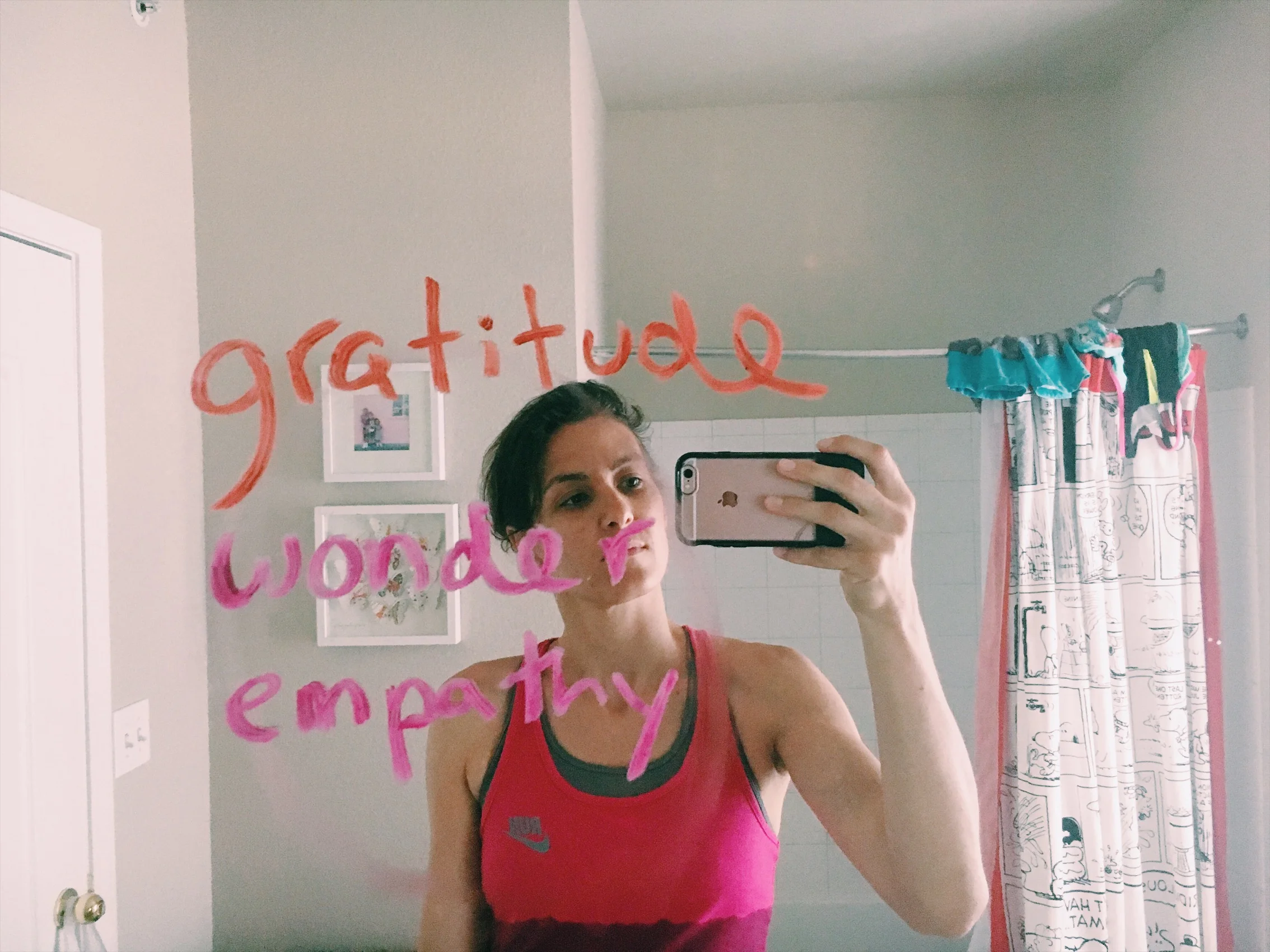Pink grass
Saturday, June 2, 2018
It's become a part of my routine to listen to The Daily, a podcast produced by the New York Times and hosted by Michael Barbaro. They are shortish 20-30 minute pieces about what's going on in the country/world, mainly in politics, but sometimes they will do stand alone stories.
On May 23 they revisited the horrific and tragic Sandy Hook school massacre that took place in 2012. The parents of the victims are suing Alex Jones for defamation; Jones has spread the conspiracy theory that the shooting was a hoax enacted by the government. He has taken the pain of these families and multiplied it. What is being debated is the first amendment—does Jones have the right to spread these lies? And what it comes down to is being able to prove that Jones doesn't really believe that it was a hoax but that he continues to push the conspiracy because it's controversial and sensational and will get viewers and clicks which will ultimately lead to the sale of products through his site.
The episode ended how it usually does, with a "here's what else you need to know today" short segment, about a minute or so long. The segment on that day was about the news that the NFL owners released a statement saying that players have the right to protest privately, but that fines will be imposed if anyone chooses to continue to protest during the national anthem. Aside: the point of protest is to try to highlight the cause and to make people uncomfortable to enact change, but I digress. Malcolm Jenkins, a safety for the Philadelphia Eagles, tweeted out a note he had written on his phone, part of which says the following: "What NFL owners did today was thwart the players' constitutional rights to express themselves and use our platform to draw attention to social injustices like racial inequality in our country. Everyone loses when voices get stifled."
It struck me as slightly ironic that this was the note the show ended on after discussing something like the Alex Jones/Sandy Hook story, where it's almost certain that Jones will use that exact argument about his voice being stifled to try to beat this lawsuit against him.
But how do you prove what someone's personal beliefs are? In order to tell Jones that he has to be quiet, don't they basically have to get inside his head and prove that he doesn't actually believe the shooting was a fake? How do you even begin to do that? Hate speech is protected under free speech, because hate speech is subjective—what I find hateful someone else may find uplifting—but is false speech protected under free speech? How do we know where one ends and the other begins? False speech is, by it's very nature, meant to sow confusion. It's further complicated when we can't even agree or aren't sure about what is false and what is truth anymore. Just today Trump said that a letter he received from Kim Jong Un was 'interesting,' and then minutes later he said he hadn't even opened it yet.
It's like we are living in a world where everyone's interpretation of the color of grass is equally valid because how do I know what you are seeing?
***
I recently was taking a walk in my neighborhood and I came across a sign in someone's yard that says: no matter what color your skin, no matter where you are from, no matter what you believe, we're glad you are our neighbor! I love the essence of this sign, but I think it's slightly flawed, because I highly doubt that if a white supremacist moved next door that person would be glad that they're the new neighbors. While I understand what the spirit of the sign is—that regardless of religion or race or origin, we can find common ground in our shared humanity—I also do not think it's always that simple. I realize I might be getting too much in the weeds here, but for example: if we say that love is love is love is love, does that mean that a grown woman can marry/have sex with her father if both parties are consenting? It's not something I think that most people would advocate for, but I think it's a valid question if we aren't careful with how we define our terms. To be clear, this is not an indictment of gay relationships/marriage. But I am suggesting that we dig deeper into the things that we say, and to ask ourselves if there is a line when it comes to romantic love, and if so, where do we draw it? How do we know? But more to the point of this essay, if we say that we should celebrate everyone and give our ears to all voices, does that extend to the likes of Alex Jones? Because I don't think that is what people mean they talk about inclusion and tolerance.
This is tricky. Some people, Jones being a great example, distort the spirit of what that message conveys and use that argument and logic to spread lies and nonsense and sell crap, causing chaos and confusion and pain and, perhaps most destructive, weaken faith in the voices of those who actually know what they are talking about, or are at least thoughtful and vigilant about what they are saying. The flip side of this argument is, of course, if the government starts regulating speech in any way, even if it's false speech, what's to stop the institution from regulating speech that it finds offensive? What if, one day, whoever is in power finds speech that, say, empowers women offensive? What's to stop those in power from spreading falsehoods themselves for their own profit/advantage? Or, what if the evangelicals of today who are so intent on silencing anything that does not line up with their belief system find themselves in a handful of years with an administration that does not take kindly to their views? What argument can they possibly give?
What I'm getting at here is not so much a critique of the sign itself because it's a sign and you only have so much room to get your point across. It's more so an observation that once an idea is ignited and taken hold of by a large group of people, it's really easy to just go along with the sound bite slogan without really thinking about what it is that we are saying and without acknowledging that said slogan may not apply in every situation, let alone be true at all. We become so allegiant to certain parties or identities or ideas that sometimes we forget to go back and reassess, to look for the nuance and cracks in our arguments, to look for the actual truth, which can, to complicate matters further, vary from situation to situation. We don't ask why? of ourselves, our beliefs and our motives often enough, and in doing so maybe we run the risk of believing that the earth is flat, that the grass is pink.





